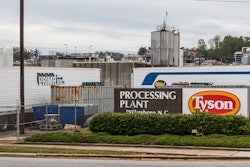
Enterprises around the globe are using blockchain to reduce cost, raise trust and broaden participation in supply chains that were previously opaque and fragmented. The World Economic Forum predicts 10 percent of global GDP will be stored on blockchain by 2027.
The immutability of blockchain technology brings a highly desirable USP of trust in an age of mistrust. Couple it with real-time data, and blockchain’s trusted properties have the power to verify physical-world states and assets, creating new value and markets. These benefits play directly to manufacturers’ future needs. As we move to Industry 4.0, where data and connectivity allow entire production lines and supply chains to be visualized and managed, those information flows must be trusted, efficient and incorruptible.
Yet, despite successful outcomes in governments, corporations and small artisan businesses, blockchain technology hasn’t reached scale and pervasiveness. The reluctance from procurement chiefs and business leaders to invest in blockchain – a technology they don’t understand – has put the technology on pause; misuse of bitcoin by criminals has confused the business conversation and dented trust in blockchain – perversely, since its proposition is that it creates trust.
There’s another reason why blockchain technology pilots aren’t making it into production: regulators, many of whom are engaged and proactive, are still getting up to speed on how blockchain will change the way industry stakeholders transact and how regulations will need to adapt to maximize the opportunities. Any pilot conducted as a solitary technology exercise needs to include the thinking of regulators, policy makers and legal teams.
But blockchain technology’s time is approaching, as large manufacturers in industries like aerospace and automotive – known for their complexity and demanding standards – see how it can help them realize their Industry 4.0 goals.
Adoption Will Accelerate
- Information transparency. Supply chains at present restrict a participant’s view to the transaction – or step – above and below their own activity; they don’t know how the whole chain is operating. As we move toward a world where Industry 4.0 enables greater frictionless data transparency, blockchains will have a key role to play in delivering efficient and transparent data flows. It will also be a central component of the data standards on which those flows take place across the supply chain.
- Trust. Greater visibility strengthens trust and confidence along the supply chain – if a problem surfaces, products can be traced and quickly recalled. In industries like aerospace, automotive, pharmaceuticals and food processing, blockchain is already being seen as a way to ensure provenance, not just through traceability, but also in terms of ethical processes and safety standards. The efficiency and durability of such processes will be greatly improved under Industry 4.0 with blockchain – this is good for both businesses and, critically, consumer confidence.
- Low barrier to entry. Blockchain is a relatively low-cost technology to deploy compared with buying an ERP system, for example. This allows new entrants and SMEs to participate alongside large incumbents.
- Streamlined processes. Blockchain reduces friction by eliminating non-value-adding processes. Because it literally links the consumer to the supplier, it challenges many players in the chain that don’t add value, especially in the currency exchange and brokerage of international trade.
LEF believes blockchain’s slowdown is temporary. We see blockchain following a typical maturation path to becoming a utility/commodity, like the cloud and many other technologies. Blockchain offers significant benefits for manufacturers and those that operate as part of supply chains where trust, traceability and provenance are key. Some of these benefits could include:
Think of blockchain as an evolution of systems of record, which increases the ability to provide trusted and transparent customer propositions, and also reduces supply chain costs. As with any new technology, blockchain has been accompanied by hyperbole, unrealistic ambitions, and a backlash of change resistance when initial experiments have failed to deliver value.
In fact, blockchain is following a maturity curve seen many times before in technology evolutions, where certain aspects of the value chain are developing faster than others. For technology to deliver business returns, the whole value chain that delivers new customer propositions – including governance, best industry practice and regulation – has to evolve as well.
Businesses interested in leveraging value from maturing blockchains need to act sooner rather than later, as latecomers to the party will have to play by someone else’s rules. It’s better to be an influencer of the rules – and part of the standard-setting efforts.
There are multiple, small-scale blockchain initiatives scattered around the globe, and a handful of notable initiatives spearheaded by major brands, notably Walmart, Maersk and Volkswagen. Frontrunners are deploying it now to leverage increased trust (through transparency and track-and-trace immutability). The collective impact of blockchain adoption by diverse actors will be to develop use cases, speed maturation and acceptance, and accelerate interoperability between platforms. In the meantime, they carry the burden of filling the regulatory and governance void.
Whether you are a tier 1, 2 or 3 supplier, being ready for this technology will not only make your own business more efficient and lower operational costs, but also create new opportunities for those supply chains that demand its use.
Paul Worthington is a senior research advisor at Leading Edge Forum.






















